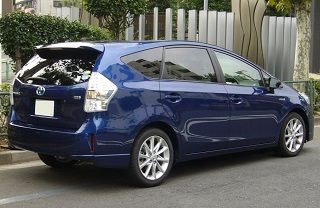From Guest Blogger Pano: Why Should You Consider Switching to a Hybrid?

How Do They Work?
First of all, the term hybrid cars refers to vehicles that combine an internal combustion engine with an electric motor powered by batteries. Hybrid vehicles generally work under what is know as a “parallel configuration,” where the single electric motor and the internal combustion engine can power the vehicle either individually or together. This gives drivers both the best features of modern electric vehicles with the practical advantages still prevalent in traditional combustion engines.
Most commonly the internal combustion engine, the electric motor, and the gearbox are coupled by an automatically controlled clutch. For electric driving, the clutch between the internal combustion engine is open while the clutch to the gearbox is engaged. While you are using the combustion mode the engine and motor run at the same speed. This means that the compact electric motor can provide the driver with extra power assist during both the acceleration deceleration phase as well as with auto-stop and start features.
What Are the Benefits?
Help the environment – it’s no secret that hybrid vehicles are better for the environment and help to keep the air clean. This is especially important in big cities where peak-time gridlock produces large quantities of smog. Hybrid cars don’t suffer from this problem as the internal combustion engine is designed to almost never run idly. As the vehicle comes to a stop, the engine is shut down to conserve fuel and eliminate damaging emissions. The car’s battery-powered motor can then take over to powering the radio or air conditioning. These features are perfect for city-dwellers stuck in bumper-to-bumper traffic all day.
Better for your wallet – as well as the benefits to the environment, many hybrid car buyers are attracted to the great fuel efficiency the vehicles offer. Hybrid technology generally lets you drive around 500 miles more than traditional vehicles, all while using less fuel and without the need to recharge. For many people travelling into the city for work a hybrid car can drastically reduce the monthly fuel bill thanks to this level of efficiency.
Government tax incentives – due to the cost of the technologies involved in the vehicle, hybrid cars are typically more pricey than their traditional counterparts. Fortunately, the UK government has a £370 million plan to increase the country’s green motoring ratio. This means that those that purchase hybrid, electric, or other green cars could be offered as much as £7,500 in tax incentives from the government. Similarly, those who don’t make the effort to go green could see higher tax rates. In an effort to accommodate the additional electrical power needed to power all of these vehicles, the country plans to make sweeping changes to its national grid system up to bring it up to standard.
A better resale value – fortunately, the initial higher costs work both ways as you can expect a hybrid car to hold its value better than same-year standard model. Some of this is due to sheer practicality – they’re often produced in reduced numbers compared to their gas-guzzling counterpart meaning it’s less common to find a used vehicle for sale. Many hybrids have high-ranking reliability records as well premium equipment included in even the standard models, though, making them a worthwhile investment.
Many people who didn’t think they could get by with a hybrid are now making the change. Now that more manufacturers are seeing this is a viable market, maybe 2015 is the year you make the switch and take advantage of the benefits.
